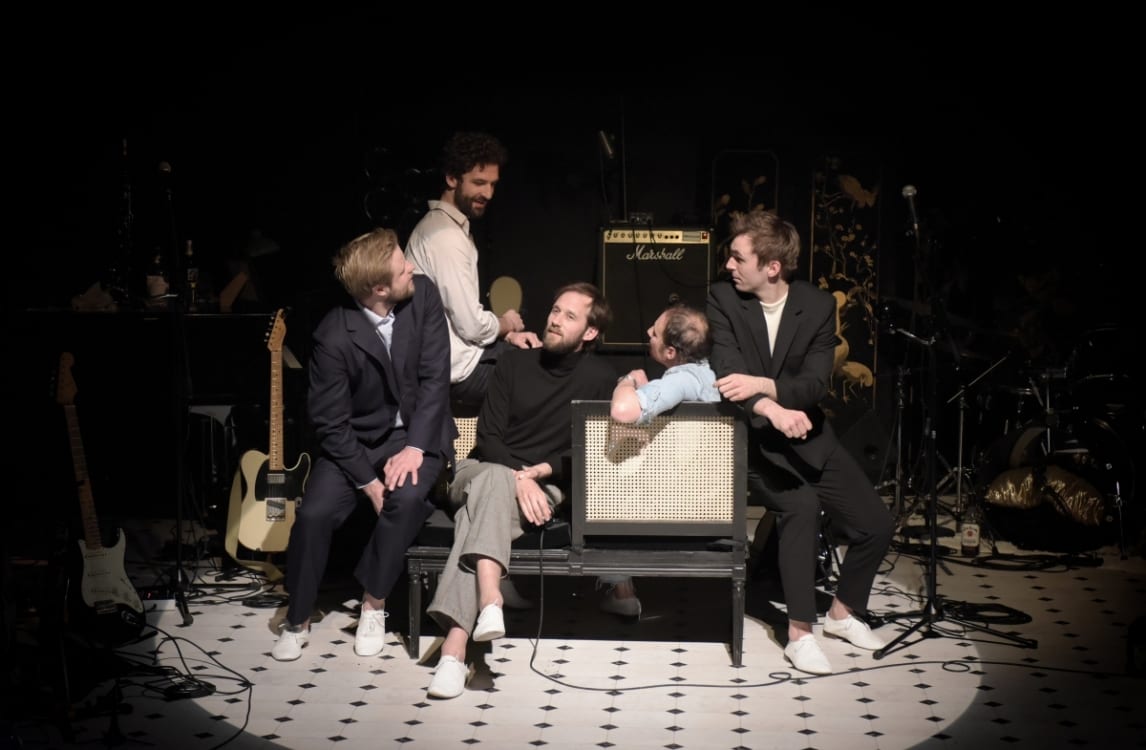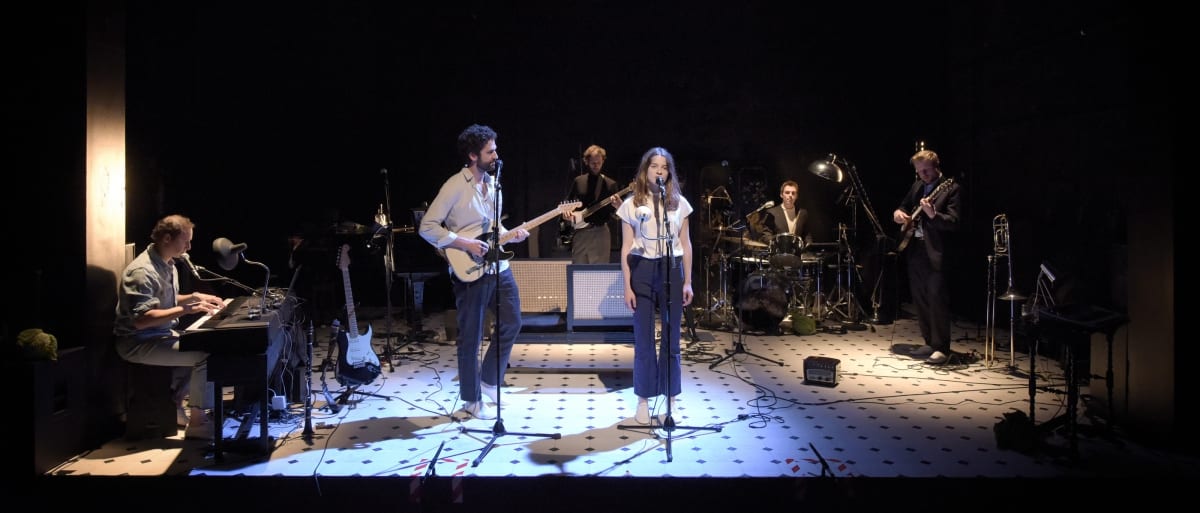A few nights ago, I had a date with Serge at the Studio-Théâtre, the smallest theater of the Comédie Française. Serge was not just one person, there were six of them: five men and a woman, and they were all on stage. Les Serge (Gainsbourg point barre) is a musical play about Serge Gainsbourg and a fantastic tribute to the provocateur he was. Just like in Todd Haynes’ film I’m not there, which is an nonconformist film about Bob Dylan, the artist’s persona is divided into six different roles, played by six different actors.
Each Serge has his own personality, the only thing they have in common is a pair of immaculate white shoes. The harmony between them is so intense that it is difficult to dissociate them and to say one is better than the other. Before the beginning of the play, Serge is already there: on the stage, there are music instruments, and a radio, which broadcasts bits of interviews of Serge Gainsbourg. His voice is covered by the public’s chatter: from the beginning, I understand that Serge is going to be among us and not only in front of us.
The first Serge (Noam Morgensztern) walks on stage and sets a very intimate atmosphere, confessing that he feels judged by the portrait of Chopin above his piano. He starts singing a very simple version of Le Poinçonneur des Lilas, encouraging the public to finish his sentences and to sing along with him. Another Serge storms in, grabs a guitar, and starts playing, followed by the three other male Serges that complete the band. The last Serge appears a bit later, as a smooth, feminine voice coming from the back of the room. Rebecca Marder might sound like a surprising choice to embody Serge Gainsbourg, but she is brilliant and she is the most provocative Serge, saying ‘I want to fuck you’ to the public.

During the play, almost twenty songs are sung and played by the six actors, and every single one of them is fabulous. Sometimes sad, sometimes ironic, sensual or sweet, always intelligent and beautiful, I was struck by the actors’ enthusiasm and communicative energy. Stéphane Varupenne’s magnificent dialogues with his trombone are glorified by Eric Dumas’ dim lights, backed by Benjamin Lavernhe’s sensual bass line and Yoann Gasiorowski’s jazzy drums beats.
If I had to remember one moment from the show, it would be the cast’s cover of Je suis venu te dire que je m’en vais (‘I came to tell you that I’m going away’), between reggae, jazz and electronic music. Yoann Gasiorowski strikes up the song with his magnetic voice, nonchalantly seducing the public and breaking its heart at the same time, a huge cloud of cigarette smoke over his head. After getting up on a chair to finish his lyrics, he leaves the stage, and the other Serges do the same: the instruments disappear progressively until only one is left alone with the public.
During the show, the actors truly created something magical and beautiful, with their perfect diction that is so good for ancient tragedies and that is also a wonderful match with Gainsbourg’s lyrics. When the six Serges all come forward for their final bow, the public greet them with enthusiastic applause, asking for another song. The two directors, who are part of the cast, explain that they didn’t expect such passion and suggest to sing Les Sucettes for a second time, but this time along with the public. The six actors, visibly having fun, begin to sing it like a hallucinated choir, lit by all the room’s lights and the spectators’ bright smiles.
A French summary of Les Serge (Gainsbourg point barre):
Les artistes de la Comédie-Française s’attaquent, dans une nouvelle création, aux textes et au personnage de Serge Gainsbourg. Je parle d’artistes, car dans Les Serge (Gainsbourg point barre), les six comédiens sont aussi de brillants chanteurs et multi-instrumentistes. La petite dimension de la salle du Studio-Théâtre permet au public d’être en véritable communion avec les six Serge, dont le plaisir et l’enthousiasme sont palpables. Ils offrent aux spectateurs une quinzaine de reprises, sombres, sarcastiques, sensuelles ou magiques, mais toutes sublimes. Le spectacle provoque un tel engouement dans la salle que les spectateurs demandent un rappel sous un tonnerre d’applaudissement. C’est ainsi que les comédiens entonnent une deuxième fois, sans cacher leur joie, Les Sucettes, comme une chorale géniale et hallucinée.

